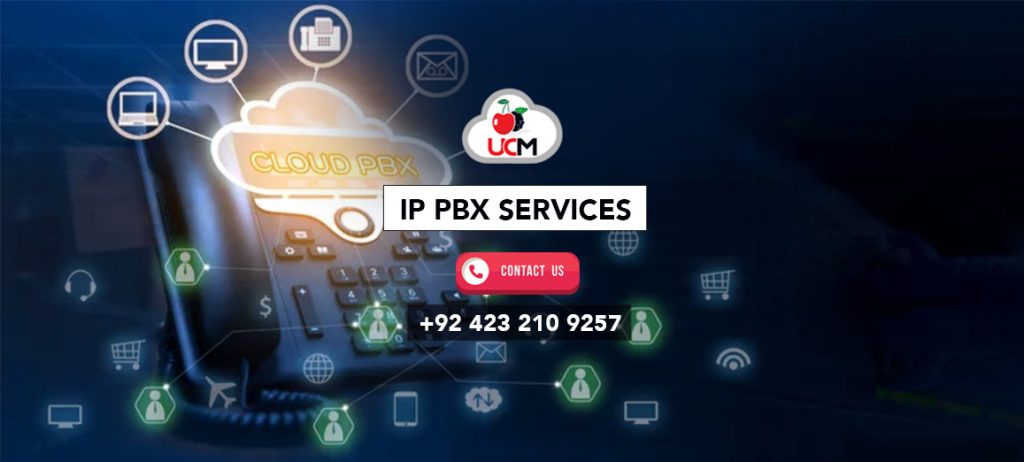How is A VoIP PBX System The Best Choice For Remote Teams?
Seamless collaboration and exceptional customer service are essential for a business’s success today. For this reason, advanced technologies of the digital age have replaced clunky wired phone systems and given way to scalable and flexible cloud-based internet solutions. The latest VoIP PBX System is one game-changing technology that has transformed how companies connect and communicate with customers and clients. The best part of this technology is that you do not need any hardware, landlines or server rooms as you can place and receive calls over the internet making it a suitable choice for remote teams. Let’s dive deep into the basics and advantages of this technology for your business.
What is A Cloud or VoIP PBX System?
This business phone system works like a standard PBX, but without using a traditional public switched telephone network (PSTN). Instead, it depends on an Internet connection to connect phones and transmit voice and video data. Cloud or VoIP PBX as a central hub to manage internal and external business phone calls. Meanwhile, the latest features like call routing, auto-attendant and conferencing make it the best alternative to the traditional wired-based telephone systems.
What are the Major Components of A VoIP System?
1. IP Phones
The advanced VoIP-based PBX systems also use IP phones like traditional phones but are connected to the internet. They convert sound into data to transmit or can be upgraded versions of legacy phone systems connected with adapters and software running on the computer or mobile phone. Your employees also need communication accessories like a microphone and headset.
2. Internet Connection
You need a reliable and stable internet connection to run your VoIP system to ensure smooth communication within and across the organisation. Companies should consult with their VoIP PBX service provider to learn about internet bandwidth requirements to run the system.
3. VoIP Gateway
This device converts the analogue voice and video signals into data packets to transmit over an internet network. It is an efficient way to connect traditional phone systems with modern VoIP networks. This system promotes collaboration among your in-house and remote teams so they remain on the same page about company matters.
4. PBX Server
It serves as the brain of the phone system that manages internal and external communication functions like voicemails, call routing and transcription. Although in a legacy system, the server is often kept in the physical location of your office, it is hosted in the cloud instead of onsite hardware in a VoIP system.
What Makes VoIP Different From Traditional Systems?
1. Infrastructure
On-premises and legacy PBX systems depend on hardware and analogue wired phone lines. They are usually located on-site. However, modern VoIP systems function digitally using an internet connection. Thus, the system requires minimal or no hardware until you use physical VoIP phones.
2. Cost
Companies require higher upfront costs in legacy systems for installation, maintenance, physical space and hardware. Conversely, VoIP systems require lower expenses as they can work on software and internet connection. This is why your remote teams can make and receive calls wherever, and whenever needed on an internet-connected device.
3. Flexibility
Latest cloud VoIP provide greater flexibility and scalability enabling your employees to stay in touch and collaborate regardless of location. Traditional phone systems do not support remote work due to dependency on on-premises hardware.
4. Maintenance
On-premises PBX systems need frequent updates and maintenance. In addition, companies have to hire dedicated IT teams or third-party service providers to keep phone lines connected. However, the service providers host the VoIP PBX so they are responsible for all maintenance, upgrades and security.
5. Integration
Traditional systems offer limited integrations and often require specialised services and a dedicated IT team. Cloud PBX systems function over the internet so they can easily integrate with existing business tools and apps.
What are the Advantages of VoIP for Your Business?
1. Offer Easier Collaboration & Flexibility
Modern businesses need innovative ways to communicate with customers, clients and teams. IP PBX systems contain advanced features like audio and video conferencing, call recording and management features. You can manage your entire business communication through call transfer, forwarding and 3-way calling without missing any calls.
2. Streamline Call Management Through the Online Portal
Staying connected is the top priority of companies besides managing the system. VoIP system allows you to view, manage and edit users’ access through the online portal. Meanwhile, your remote and in-house teams can collaborate easily and use the same system features.
3. A Less Expensive Option
By moving to the latest cloud VoIP PBX systems, companies can dramatically reduce the expenses on infrastructure and hardware. They can also manage their business from anywhere which reduces other unnecessary costs.
4. Better Solution to Future-Proof Your Business
IP PBX systems are better alternatives to physical phone systems as they allow you to scale for future growth and increase efficiency. Companies can easily add new features and users as their business grow. It also means your business phone system will always grow with your changing needs. Furthermore, you only have to pay for the features you need that reduce unnecessary expenses.
5. Ensure Business Continuity
Another important benefit of the VoIP system is resilience. There are minimum to no chances of unexpected shutdowns and cloud technology keeps your business data secure. In case of any disruption, your calls automatically move to backup centres.
6. Facilitate Remote Teams
VoIP systems are ideal for your remote teams who can access the system from any location and make and receive calls over the internet connection. Meanwhile, they can also collaborate with in-house teams with video conferencing features.
Closing Thoughts: Make the Right Decision for Long-Term Success
Today, traditional PBX systems have been overtaken by new technological advancements like cloud or VoIP technology. They allow companies to make and receive calls over the Internet without investing in costly hardware, wired landlines and bulky servers. Meanwhile, you can scale up and down with your business’s fluctuating needs through the latest unified communication system. The VoIP systems are an ideal option for remote teams who can communicate and manage voice communication within and across the organisation seamlessly. Meanwhile, a VoIP PBX System is easy to install and maintain. Are you ready to upgrade to a future-proof communication solution? Get CherryBerry UCM assistance to develop your business communication on modern lines.




